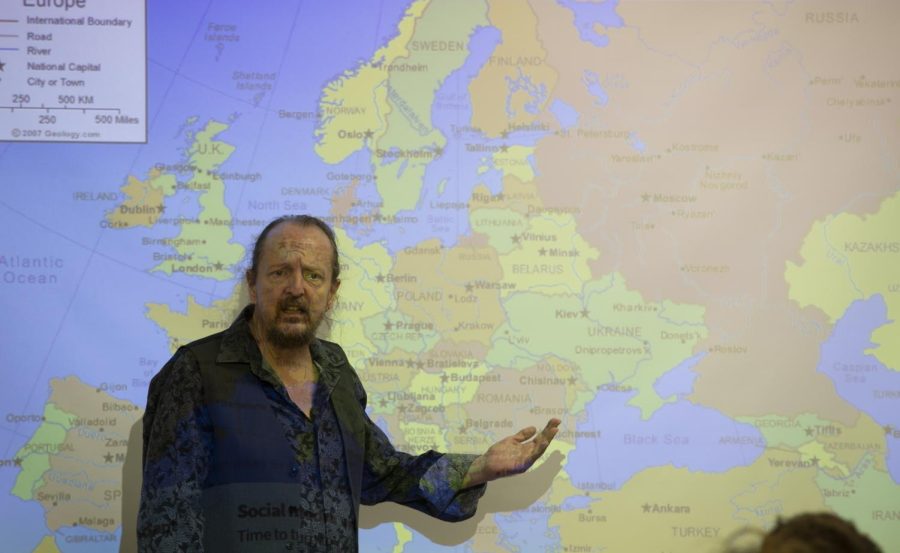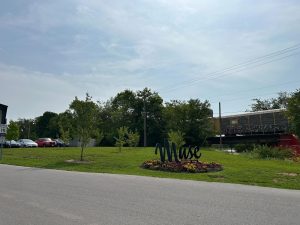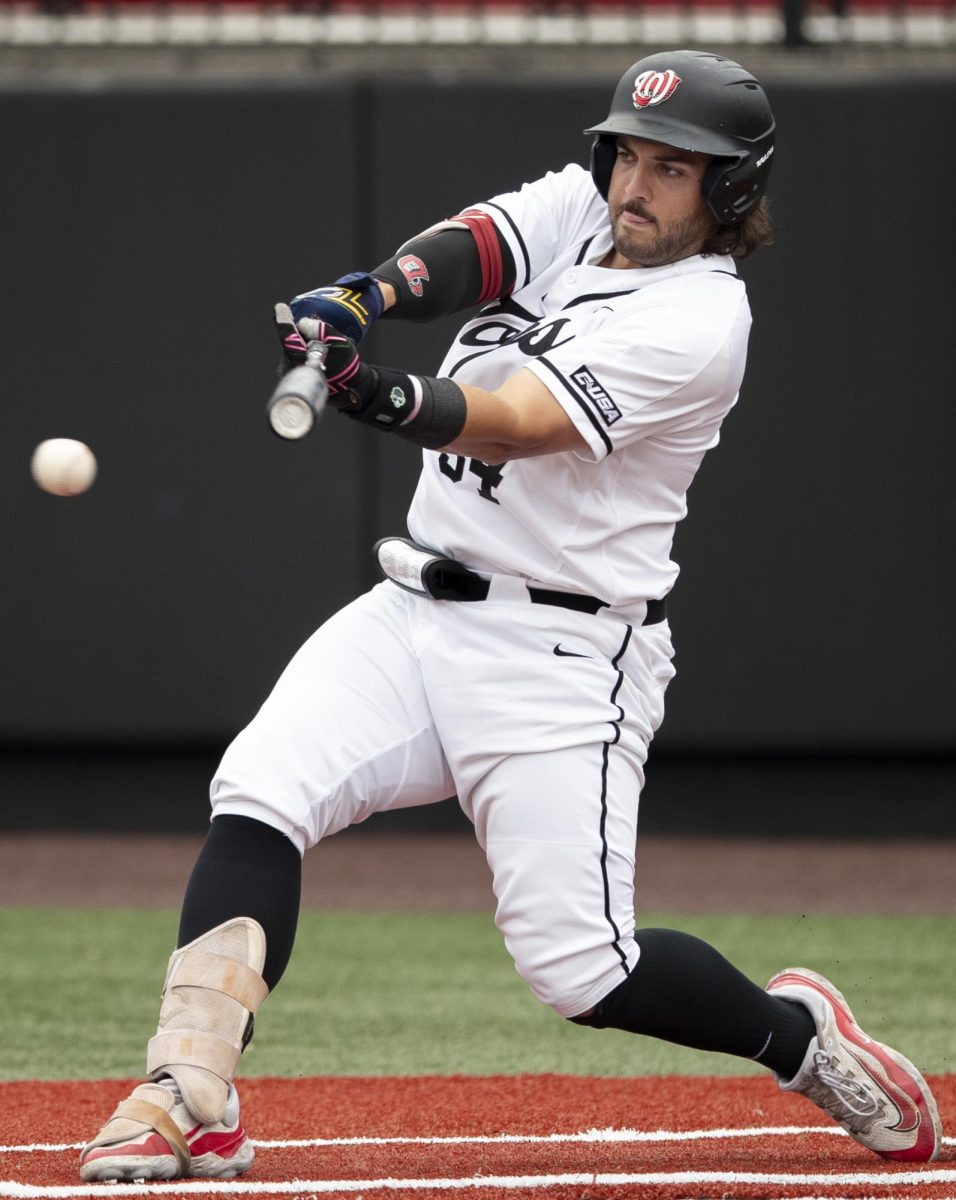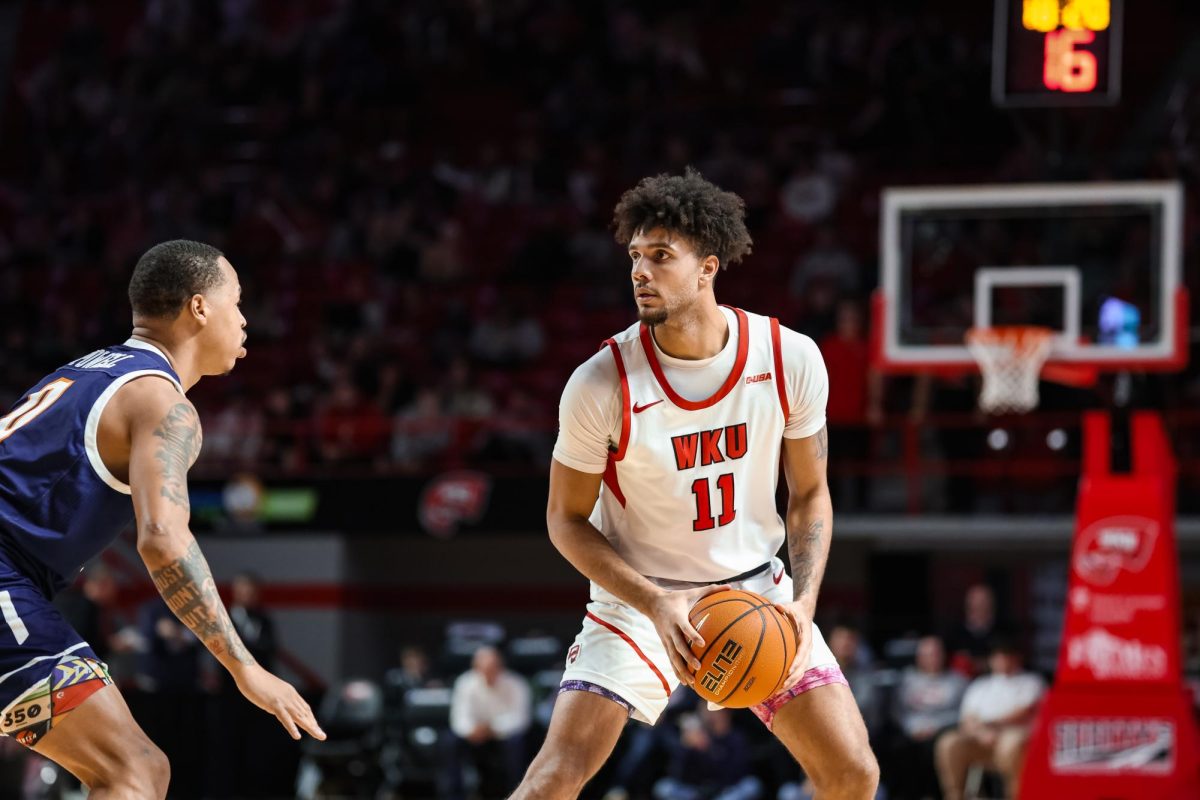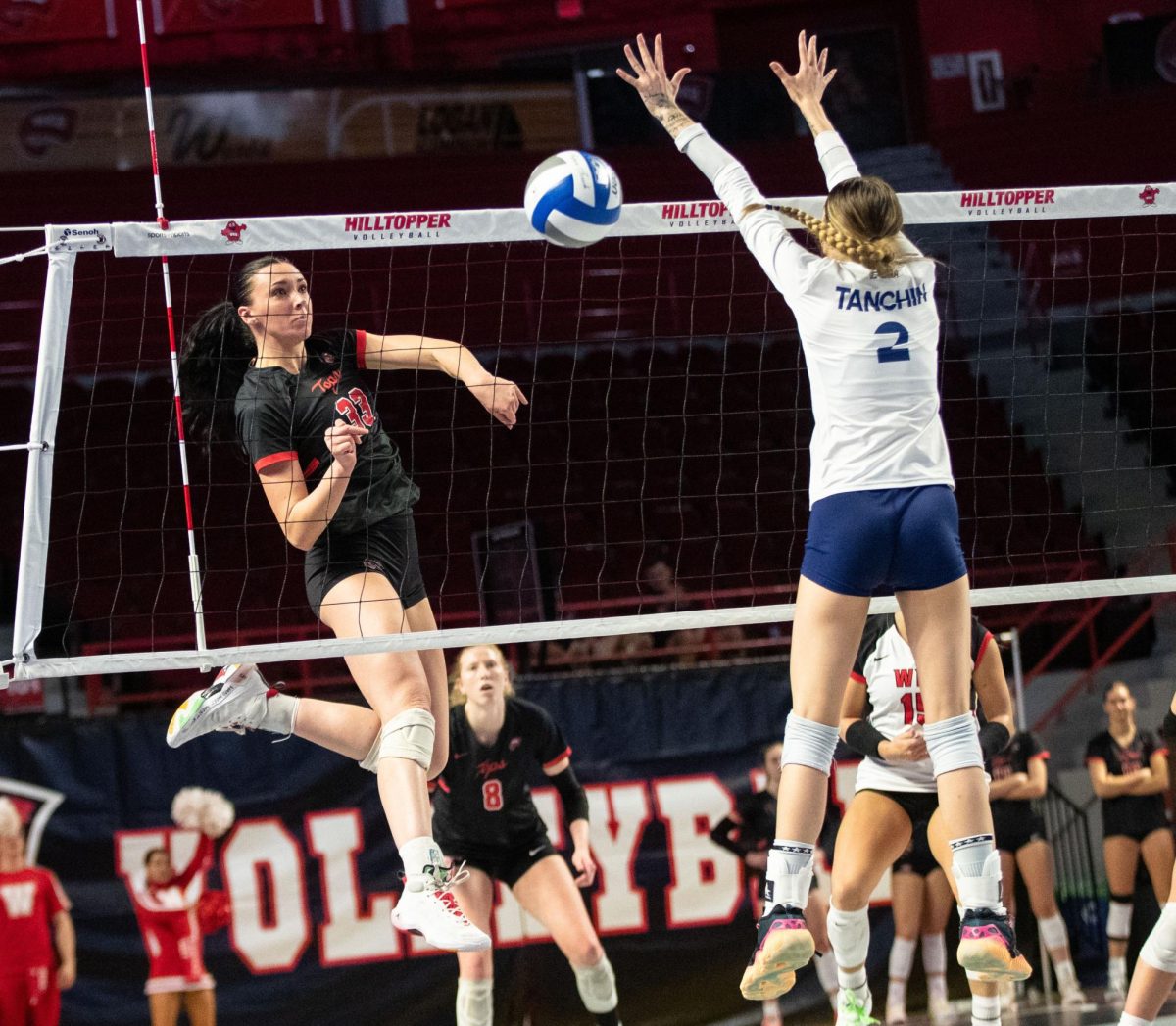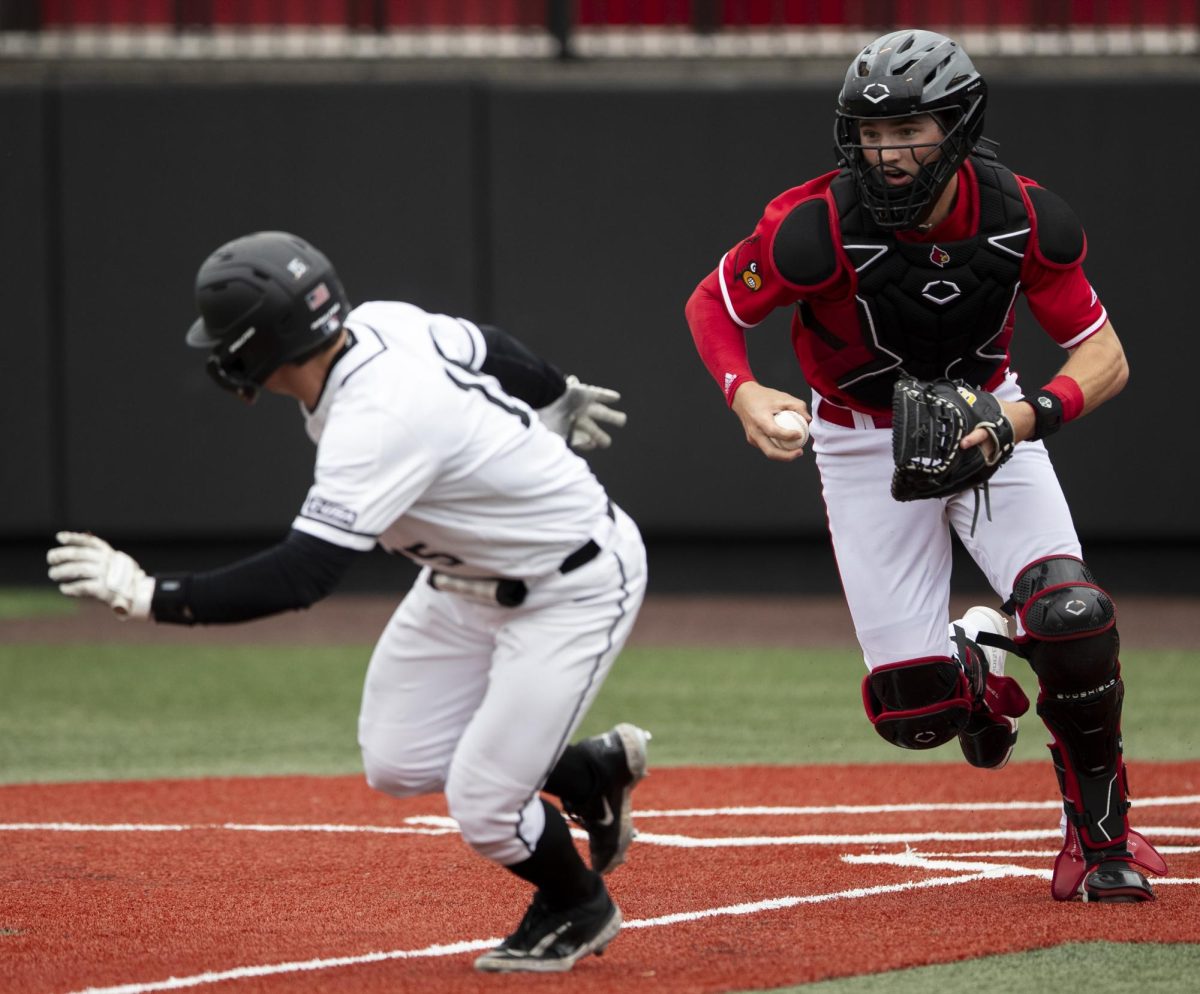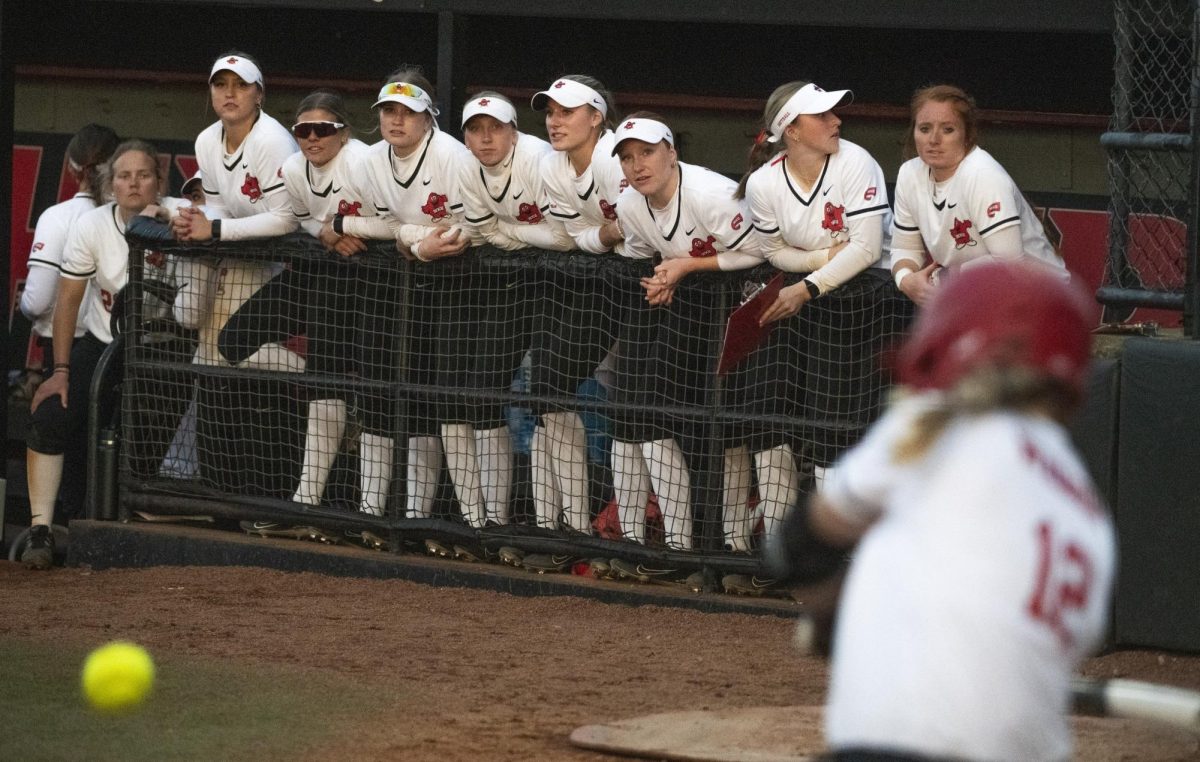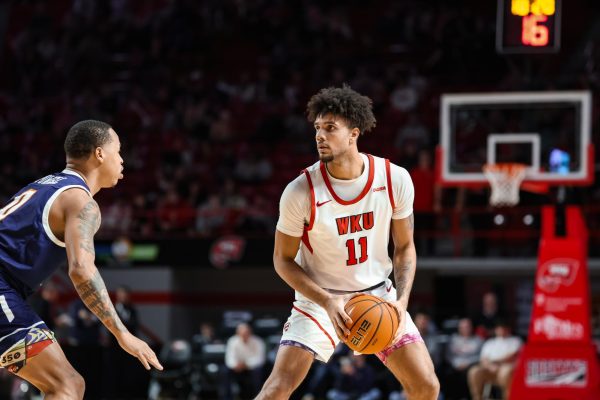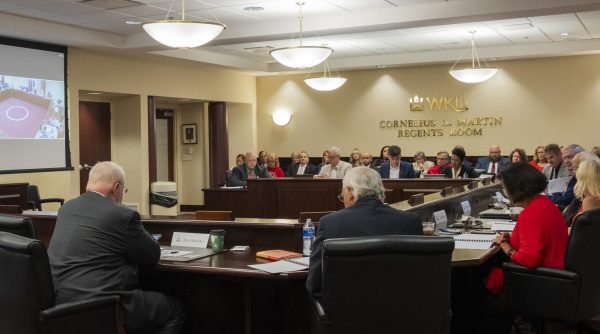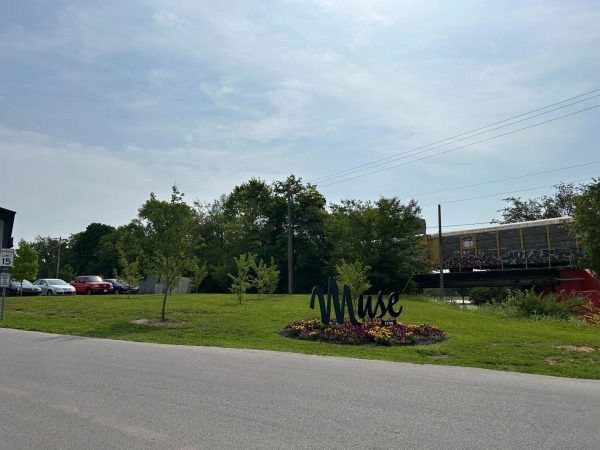Professor panel outlines costs, concerns and consequences of Russian invasion
Political science professor Roger Murphy presented potential impacts of Russia’s invasion of Ukraine on the NATO alliance. Murphy said the ongoing conflict will likely push former Soviet-aligned states toward western European influence. In recent days, Ukraine, Moldova and Georgia have all applied for membership into the European Union.
March 4, 2022
Professors from WKU’s Department of Political Science and History Department hosted students and faculty for a panel surrounding the ongoing invasion of Ukraine by Russian forces. The event saw a huge turnout, requiring a separate Zoom room to accommodate attendees and lasting nearly twice as long as expected as students eagerly presented the panel with questions.
The panel was hosted by Diplomat-in-Residence Michael McClellan, history professor Marko Dumančić, and political science professors Timothy Rich, Roger Murphy and Soleiman Kiasatpour. Each professor explained aspects of the conflict in relation to their respective fields before answering questions from the audience.
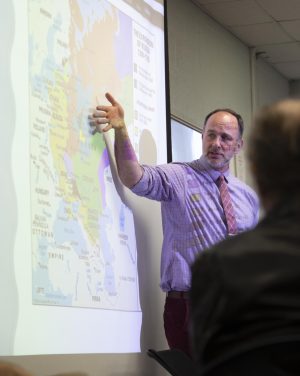
Dumančić began the discussion with a brief overview of the history of Ukrainian-Russian relations and dispelled common misconceptions about each country. He challenged claims that Ukraine was a part of Russia for centuries, explaining that different Ukrainian lands have been ruled by numerous states over the last several centuries.
Dumančić explained that Russia’s most recent expansion into Ukraine is not isolated, and that the Russian state has been an expansionist power since the reign of Ivan III the Great in the 1400s’.
This expansion has resulted in abuse toward Ukrainian people throughout history, Dumančić said. He pointed to the Holodomor in the 1930s’, when 5-7 million Ukrainians died due to a man-made famine brought on by excessive food exportation by Soviet leadership.
“This, I think, is an example of how Russia has treated Ukraine as simply a geo-strategic, important region that was valuable for its resources,” Dumančić said.
McClellan followed Dumančić to explain diplomatic responses to the current conflict.
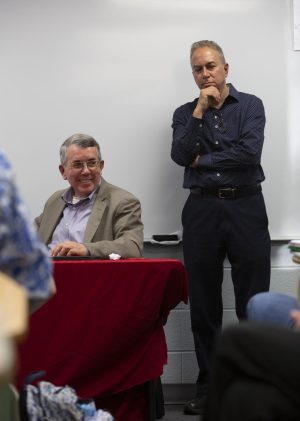
“The most fundamental issue at stake in Russia’s invasion of Ukraine is whether the founding principles of the UN […] will be upheld by the diplomatic community,” McClellan said.
A primary clause of the UN Charter states that states can not alter borders through means of violence, which McClellan said is important in a post-colonial era where borders are not designed based on ethnic, traditional or historic boundaries.
McClellan said the invasion of Crimea in 2014 as well as the most recent invasion both violate numerous international laws set forth by the UN. He also explained that while many nations have explicitly ruled out direct military action, all NATO and UN members are permitted to provide funding and arms to the Ukrainian government.
McClellan outlined various responses by the international community, including investigation into Russian war crime allegations, international condemnation by the UN General Assembly and evacuation of embassies within Russia.
“As a result of this invasion, Russia has effectively become an isolated pariah state, led by a possible war criminal with a mentality stuck in the 19th century, whose economy is crashing with little access to its massive assets kept in overseas financial institutions,” McClellan said.
Murphy then explained the responses of states neighboring Ukraine and Russia, asserting that while Russian president Vladimir Putin was likely seeking to mitigate the influence of the EU and NATO, the invasion has resulted in states like Moldova and Georgia seeking closer ties to western European powers.
“What this has actually done is its renewed the European Union’s purpose in many ways,” Murphy said.
Several unprecedented events have also marked the significance of the diplomatic response to Russia, Murphy said. Germany is now sending arms to a foreign country for the first time since 1945. Switzerland has imposed sanctions on Russia, a stark contrast from their typical diplomatic neutrality. Countries that typically align with Putin’s agenda, such as Turkey and Hungary, have explicitly opposed the invasion.
Murphy pointed to a glaring uncertainty this situation presents: Will a strengthened NATO and EU encourage Putin to back down, or will he escalate the conflict to save face?
Rich followed Murphy to explain the implications of the conflict on geopolitics in Asia, specifically on the relationship between China and Taiwan. Rich warned that there are notable differences between Russia’s invasion of Ukraine and China’s claim to Taiwan that make them difficult to compare, but that “both China and Taiwan are learning from this.”
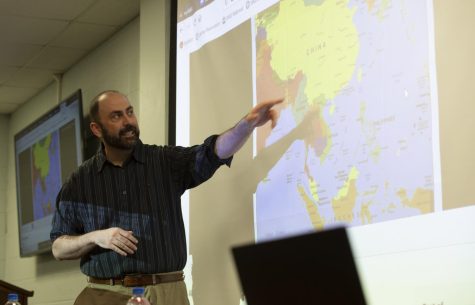
“China is learning, perhaps, what an invasion might entail, how it might not go as planned, how there might be sanctions you didn’t expect from other parties, among other things,” Rich said. “Taiwan, for example, has already talked about increasing defense spending, which has been very controversial in Taiwan for quite some time.”
Rich said that economic ties to Russian fuel and food exports may be cause for concern for China as the global community attempts to shut down Russia’s international trade capabilities.
China typically backs Putin in international discussion, but Rich said the basis for this support is on claims of territorial sovereignty. Rich said the invasion puts Chinese leadership in a difficult position as many within the country see Russia’s invasion as a clear violation of sovereignty.
Rich moved on to other Asian states’ responses, such as Japan’s decision to stop automobile exports to Russia.
The upcoming South Korean election has provided a stage for foreign policy discussion, Rich said. He pointed to voter polls that show a drop in support for candidates who have failed to condemn Russia. North Korea, in contrast, blamed NATO expansion and US imperialism for essentially forcing Russia to invade.
Kiasatpour ended the presentation portion of the panel by outlining the unique diplomatic situation many states have found themselves in following the recent UN vote to condemn Russia, with many states voting alongside “interesting bedfellows.”
“India and Pakistan found something to agree upon, they both abstained,” Kiasatpour said. “Cuba and Nicaragua — they’ve been staunch allies with the Soviet Union and Russia, and they actually abstained.”
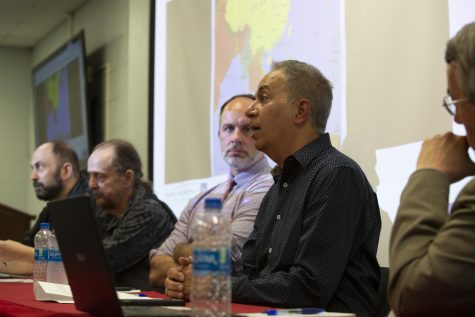
“I have a sense of what people in Ukraine are going through in terms of being a civilian and being bombarded as they are, because I experienced that in the 80s in Iran,” Kiasatpour said. “Once this invasion occurred, I talked to our department head and said we need to have a meeting.” (Michael J. Collins)
Kiasatpour said that Russia’s neighbors Kazakhstan, Kyrgyzstan and Turkmenistan also abstained from the vote. While this is less outright than a vote in favor of condemnation, Kiasatpour said he feels this “sends a strong message that what Putin has done is being condemned by a host of countries.”
OPEC has also honored a previous agreement with Russia to gradually raise oil production, a decision which Kiasatpour said does little to mitigate the loss of Russian oil due to sanctions. The US has tapped into its own oil reserves to combat oil prices that have increased globally, but this is a fraction of the total oil supply lost to sanctions.
“The high oil prices will help these regimes, but the high cost of [Russian exported] food may get people out on the streets,” Kiasatpour said. “But as we know, these countries aren’t democracies, so it’s going to be hard for people to change the minds of leaders of these particular states around the Persian Gulf.”
Editor-in-Chief Michael J. Collins can be reached at [email protected]. Follow him on Twitter @MJCollinsNews.


